| DIVUS PRAHA: PRIVATE NATIONALISM | xenofobition | |||||||||||||
|
|||||||||||||
PRIVATE NATIONALISM | xenofobition21.02.2014 18:00 - 15.03.2014Divus | action | en cs |
|||||||||||||
|
Tibor Horváth, Mara Oláh, Csaba Nemes, József Szolnoki (Hungary), Özgür Demirci (Turkey), Oskar Dawicki, Karol Radziszewski, Agnieszka Kurant, Cecylia Malik (Poland), András Cséfalvay, Martin Piaček, Tomáš Rafa, Jaroslav Varga, Martina Slováková, Jonathan Ravasz, Ilona Németh, József R. Juhász (Slovakia), Barbara Lublich, Ulu Braun (Germany), Daya Cahen (Netherlands) and MCFSAE (from Czechia Ivan Mečl, Lenka Klodová, Jan Turner, Filip Turek, Martin Zet, Šárka Mikesková, Jiří Surůvka, Ivan Vosecký, S.d.Ch. and from Serbia Uros Djuric)
In Europe, we are living in a period of great criticism. Things are bad, and so everything is bad. Things used to be better, they say. Only in Russia, China, and a little bit in America do people think things will get better. I’m leaving out those few countries where things are, allegedly, fine. Those three big countries are enough – after all, as they say: when things get better there, they’ll get better elsewhere, too. But until then, let’s be critical. The rest of the world suffers from a hopeless skepticism, because hope is not a quality found in postmodern society and its way of thinking. The postmodern world – a world without great hope – came fully into being only recently, and not when it was merely proclaimed. The postmodern era begins with the era of economics, with the application of performance indicators to everything just for the sake of performance. Performance has no other goal – neither ideology, nor well-being, nor empire. Its yardsticks are electronic account balances. Cash is for scum. Purification. Purify yourself and escape from the scum. In an era like this, you can’t do anything with the world if you don’t have a good corporate job or a large and successful company. And yet we somehow need to kill time. To kill bad time. It is an era suitable for eradicating the remaining myths and prejudices of past generations. So now let’s deal with remains of nationalism. After that, we would like to eradicate the churches and the still sustained myths of Gods who love Man and watch over the world. We are willing to tolerate Gods that hate Man and could care less about the pathetic results of their Creation. After all, we don’t have to worry about them. Why separate oppression on the part of religion and nation? Both are based on questionable values, constructed history, and non-existent or idealized figures. The basic idea is the same: The “others” are dumber and uglier, and simply have no value within the grand concept – the grand concept of the deification of the nation. Well, at least we have put that behind us here in Europe. I don’t even want to imagine what terrible things have to happen to America, China, and Russia for them to get over it once and for all. For the most part, nationalism in Europe has survived as a caricature of itself, primarily among the lumpen-consumerist class,[1] which is economically almost entirely unproductive[2] but capable of effectively producing hatred. Why a poor person, outcast, living in contempt of those who have had greater fortune[3] does not produce love, we do not know. The economic middle class and the educated poor do not want to look ridiculous when it comes to the question of nationhood, and so they ignore it. The economic elite has transferred itself and its bank accounts to Singapore, and so we have not succeeded in getting their opinion. Things should stay like this, so that we could just laugh at it. Until we write demythologized history textbooks, we don’t stand any chance of eradicating nationalism, not even its domestic variety. Aleš Čermák recently published a book comparing how secondary-school textbooks from several European countries look at the Second World War. It is surprising how differently we in Europe still interpret even our modern history. Often, questionable sources of pride – invented histories, heroes, and their acts – are created by a country’s founding fathers in order to shape nations,[4] and their leaders, in order to absorb or eradicate other nations,[5] and in order to avoid being absorbed or eradicated themselves.[6] After achieving their goals, all these founding fathers and leaders forget to demythologize the sense of their national existence, and their at first theatrical inventions later turn against them and their successors like in a horror movie. Long after their deaths, we still fail to take heed. We keep textbooks that are full of ridiculous stories of heroism that historians have long described as insidious, if they ever happened in the first place, and full of heroes that others view as cowardly murderers – if, that is, they ever existed at all. And so any idiot who, like Daniel Landa, makes his way through secondary school can sow fear with a mystical nationalism based on the story of a group of deserters slumbering in a mountain, the poorly educated Left can love the Hussites even though they were a medieval Taliban, and senile presidents wave about the bones and jewelry of kings scorned by the rest of Europe. Better to do away with history. It brings nothing but problems, and nobody learns anything from it anyway. Not surprisingly, more people would ban sex education – i.e., education about something we have – than history, which is about things where we can’t even agree on how they happened. Fortunately, it is all quite humorous. Nationalists don’t like humor, and never had a sense for it. Humor is the greatest weapon of contemporary man, who must be capable of at any time seeing even his own actions ironically. As soon as you begin to take yourself seriously, it is your end. Your life is over. Kill yourself, because it won’t be worth living anymore. You’ll worry yourself to death anyway from the knowledge that you are no hero. The nation does not need you, and the idea of nationhood must at some point rot completely like even the best-maintained corpse. It is also a big mistake that we do not offer a helping hand to those needy individuals who seek to abandon the nationalist platform. Many of them have nothing except the traditional dark clothing and pseudo-uniforms in which they are unacceptable to contemporary society, thus leaving them caught in the trap of falanga-fashion. Let us, upon encountering such unhappy souls, offer them bright clothing regardless of whether they are true deserters or not. Let us show some courage for this campaign! Awkwardness is freedom!
When things get better, we can forget about it again. God (or the Dalai Lama) willing, it will be soon!
[1] In Hungary and Slovakia, it is currently acting up constitutionally, but hopefully that is just a temporary escapade. Things will get even wilder after the accession of the countries of the former Yugoslavia – then we will really have to eat what we all cooked up with our active support of Balkan redistribution. [2] European economists use the word “unproductive” to describe this class when they want to denigrate it and emphasize its productivity. In Europe the economic force of hatred can no longer be used, and so we do not measure it. In Africa, for instance, this force is easily harnessed to start wars that are, economically speaking, highly productive. The world’s rich nations do not want to help Africa’s poor regions effectively, because a satisfied population does not like to fight. There would be nobody to purchase weapons, no profits from post-war reconstruction, and no chance of gaining raw materials from war-ravaged countries for a pittance. The seemingly unintentional act of keeping of part of the world in a state of shit is an ingenious post-colonial strategy. [3] Yes. In recent years, it is really a question of fortune. Actual work has almost nothing to do with it anymore. [4] Masaryk and Štefánik. Thinkers, adventurers and do-gooders. At the peak of their success, they showed a typical penchant for riding boots and uniforms. Czech Television and Slovak Television are planning a joint children’s puppet series about them. [5] Hitler, Horthy and Mussolini. Typical world-wreckers who began dressing in uniforms during childhood. The protagonists of many books and movies. Hitler and his swastika can be found everywhere in art and the media and will be with us forever, just like he wanted. If he hadn’t died, he would have grown rich from the royalties. They love Hitler in India and Pakistan – just ask Mefhooz. [6] Pilsudski. Controversial and boring like Poland itself. For style of dress, see footnote 4.
More about PRIVATE NATIONALISM PROJECT
Prepared by: Approach Art Association, Pécs (HU), Divus, Praha (CZ), Kassák Centre, Nové Zámky (SK), Zsolnay Culture Quarter, Pécs (H), OSTRALE, Drážďany (D) SPACE, Bratislava (SK), ApartmanProjekt, Istanbul (TR) and Bunkier Sztuki (PL)
Newspaper in PDF format
21.02.2014 18:00
- 15.03.2014
Artículos recomendados
|
|||||||||||||
|
04.02.2020 10:17
Letošní 50. ročník Art Basel přilákal celkem 93 000 návštěvníků a sběratelů z 80 zemí světa. 290 prémiových galerií představilo umělecká díla od počátku 20. století až po současnost. Hlavní sektor přehlídky, tradičně v prvním patře výstavního prostoru, představil 232 předních galerií z celého světa nabízející umění nejvyšší kvality. Veletrh ukázal vzestupný trend prodeje prostřednictvím galerií jak soukromým sbírkám, tak i institucím. Kromě hlavního veletrhu stály za návštěvu i ty přidružené: Volta, Liste a Photo Basel, k tomu doprovodné programy a výstavy v místních institucích, které kvalitou daleko přesahují hranice města tj. Kunsthalle Basel, Kunstmuseum, Tinguely muzeum nebo Fondation Beyeler.
|




















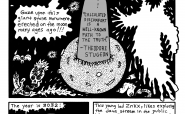
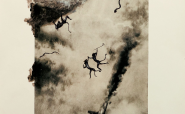
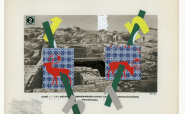

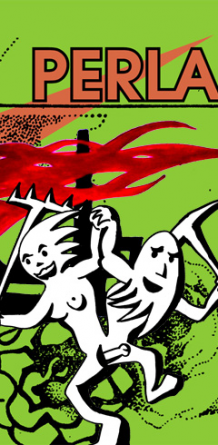











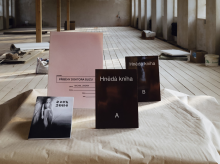
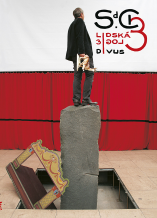
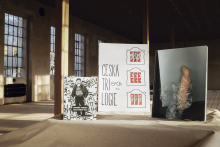



 We Are Rising National Gallery For You! Go to Kyjov by Krásná Lípa no.37.
We Are Rising National Gallery For You! Go to Kyjov by Krásná Lípa no.37.
Comentarios
Actualmente no hay comentariosAgregar nuevo comentario